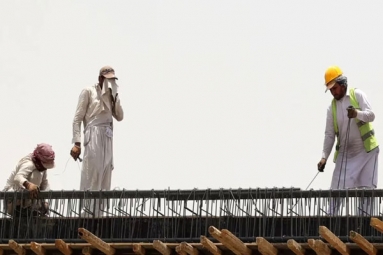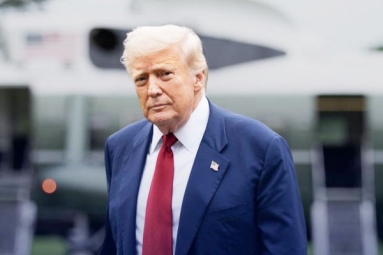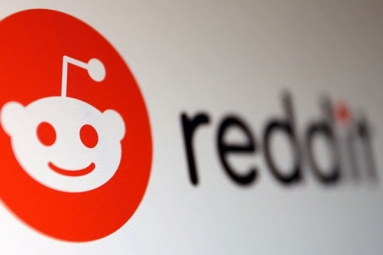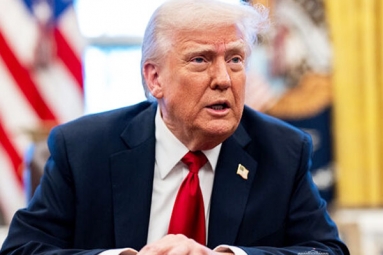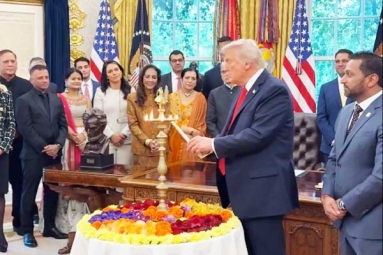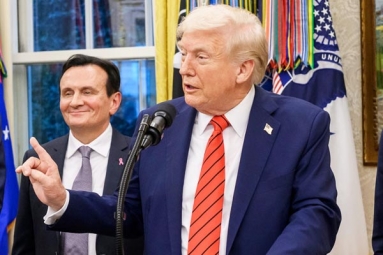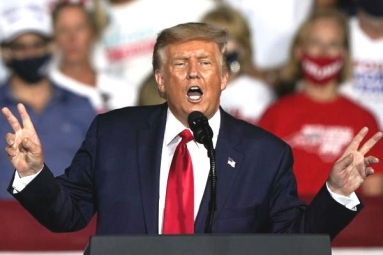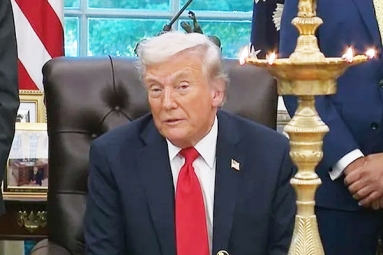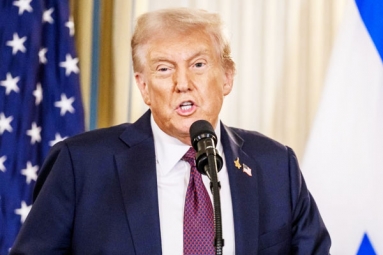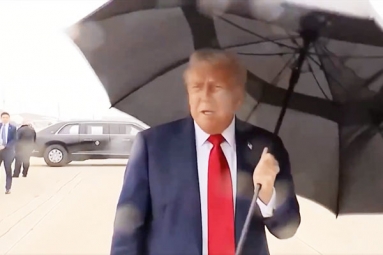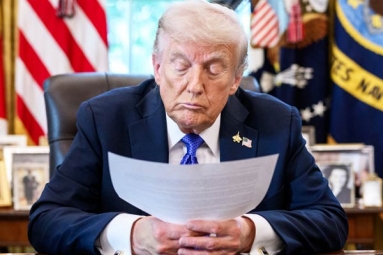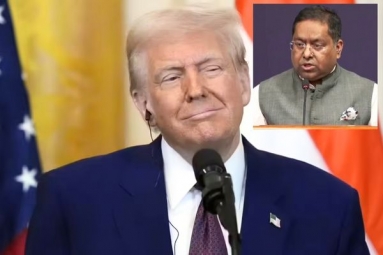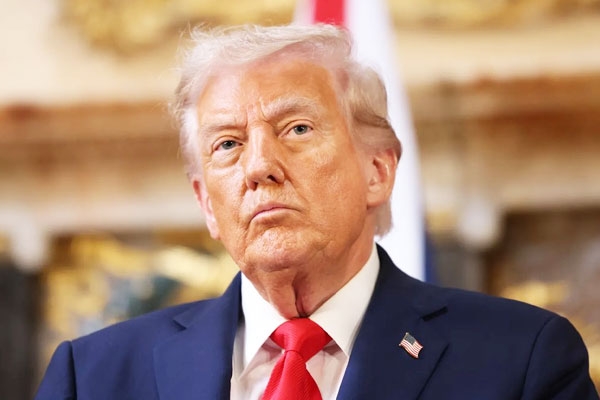
(Image source from: x.com/WhiteHouse)
Just had a fantastic chat with my buddy. He is doing an incredible job, US President Trump shared after congratulating Prime Minister Narendra Modi on his birthday. This phone call, which happened after a 90-day gap, was viewed as a sign that relations might be getting better amid trade issues and tariffs. However, the recent actions from Trump aren’t likely what PM Modi would have wanted as a birthday surprise. The cancellation of the waiver for sanctions related to Iran's Chabahar Port, where India is building a terminal, along with the introduction of a hefty fee of $100,000 for an H-1B visa, leaves many guessing if Trump is using the "good cop, bad cop" strategy with New Delhi. While Trump presents a hopeful side regarding India relations, he is also indirectly applying pressure through matters involving Chabahar, H-1B, and tariffs.
Trump's strategy has two main aims – to convince India to accept an uneven trade agreement and to lower its purchase of Russian oil using tough measures, while also maintaining a friendly approach to keep the cooperation channels open, especially regarding countering China. Therefore, after a period of Trump and his team softening their comments about India following weeks of harsh statements, the pressure tactics have returned once more. Interestingly, this aligns with the US restarting trade negotiations with India, which had been on hold for months due to India’s strict rules on allowing more access to its agriculture and dairy sectors. The first action was the removal of the sanctions waiver for the Chabahar port in Iran – just a day after Trump’s kind birthday call to PM Modi. Notably, Trump was the one who granted this waiver during his first term in 2018.
While the US claimed this move was aimed at Iran, Trump certainly understands it could negatively impact India. India has been working on the Shahid Beheshti terminal at the Chabahar port – a crucial facility for bypassing Pakistan and reaching Afghanistan and Central Asia. Just last year, India and Iran signed a 10-year agreement to develop and manage this terminal.
The removal of the sanctions waiver also threatens the International North-South Transport Corridor (INSTC) project. The Chabahar port was seen as a key center for this project, which aimed for smooth shipping between India, Iran, Afghanistan, Armenia, Azerbaijan, Russia, Central Asia, and Europe. Additionally, India views the Chabahar project as an important way to counter China's presence in the region through Pakistan's Gwadar port. With Trump's latest actions, the port's operations now face the danger of US sanctions. India's considerable investments, exceeding $120 million in infrastructure and financial support for development, are also at risk. Due to the sanctions, many shipping companies and equipment providers may also reduce their activities at the port. Furthermore, India risks harming its relationship with Iran if it succumbs to US pressure.
The second pressure strategy emerged on Friday, as Trump set a significant fee of $100,000 on applicants for H-1B visas, which translates to over Rs 88 lakh. This decision will primarily impact Indians, who have traditionally been the backbone of the H-1B program, making up about 70% of the total visa holders. This new rule will take effect on September 21. It is part of a plan by the US Labor Department known as "Project Firewall," aimed at protecting job opportunities for American residents and aligning with Trump's "America First" initiative. Interestingly, this news comes just a few days after Trump hosted several prominent tech leaders, including five CEOs of Indian descent, at a significant dinner at the White House to strengthen connections. This abrupt policy change has caused alarm in Indian tech communities, especially since the visa fees could match or exceed the annual salary of an average H-1B worker.
Over the years, leading tech companies such as Amazon, IBM, Microsoft, and Google have depended on this program to hire international employees. Previously, the total administrative costs for H-1B visas were about $1,500. The extra $100,000 fee will increase the expenses for US companies looking to employ foreign talent, especially from India. In 2023, India received 191,000 H-1B visas, which rose to 207,000 in 2024 under Joe Biden's administration. The consequences of this will be felt by Indian IT consultancies like Infosys, TCS, and Wipro. The high visa fees will make it pricier for these firms to send junior or mid-level employees to the US. These combined actions – the sanctions on Chabahar port and the increased H-1B visa fee – show Trump's mixed signals towards India while he continues to praise PM Modi.
Karnataka minister Priyank Kharge expressed the situation accurately. He tweeted about Modi's "best friend" signing an executive order that requires a $100,000 yearly fee on H-1B visas. He pointed out this follows the 50% tariff, the HIRE Act, the end of the Chabahar port sanction exemption, and Trump’s request for the EU to impose a 100% tariff on Indian products. Geopolitical analyst Aarti Tikoo Singh remarked that the US has nearly "ended the American dream" for many in India. It raises questions about whether the recent improvement in relationships is a true change of heart or merely a shift in Trump's strategy.



